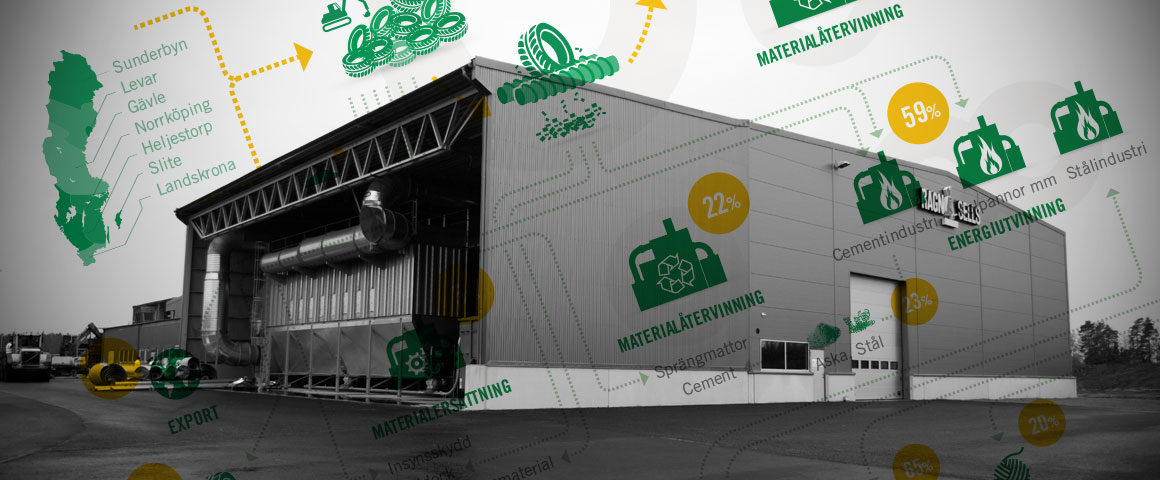
The tyre’s journey in the recycling process
Every year, Ragn-Sells Tyre Recycling collects about 155,000 tons of scrap tyres from around Sweden and Norway. After the treatment process, the tyres get a new life and new functions in everything from artificial turf pitches to cement.
When the tyres arrive at their treatment facilities, they are first sorted manually according to what they are to be used for. Some tyres are also sold on for different uses. Some go for export and are reused following retreading. All the tyre material is also recycled by becoming bomb blankets and as a filler material in insynsvallar. The cement industry also contributes to the recycling of whole tyres as it uses them in the manufacturing process.
At several of Ragn-Sell's tyre treatment facilities, whole tyres are cut into different sizes, from zero to 350 millimetres, depending on how the material is to be used in the next process. Tyre shreds have many uses and can, for example, be used in coal boilers, for energy recovery, for paddocks and as construction materials.
Tyre shreds have draining, insulating and damping properties and are thus used to advantage in soil and layout work. One of the most important uses for tyre shreds is when the material is recycled through granulate manufacture. In the process, rubber, textile and steel are sorted and all are recycled. The rubber granulate is mainly used on artificial turf pitches and rubber asphalt.
Of the 155,000 tons of tyres which Ragn-Sells Tyre Recycling collects, 59 per cent goes to energy recovery, 34 per cent to material recycling, 5 per cent to material replacement, 1 per cent to export and 0.05 per cent to re-use via retreading.
Quality assurance of recycled materials
Ragn-Sells Tyre Recycling’s quality work is based on our strategic goals, applicable laws and regulations, risk prevention and continuous improvement.
The recycled tyre quality assurance process includes the following steps:
- Quality control of input material prior to treatment.
- Sorting of unapproved material, e.g.solid tyres, red hoses and tyres with white sides.
- Sampling pitches after treatment.
- Outgoing material is analysed and checked for physical and chemical properties.
- When selling outgoing materials, material sheets are provided. See our material sheet for rubber granulate
- In the case of artificial turf pitches, instructions for safe use are provided. They contain recommendations on how to build, design and manage the pitch to reduce the risk of waste. Read more about Safe use of rubber granulate on artificial turf pitches’
